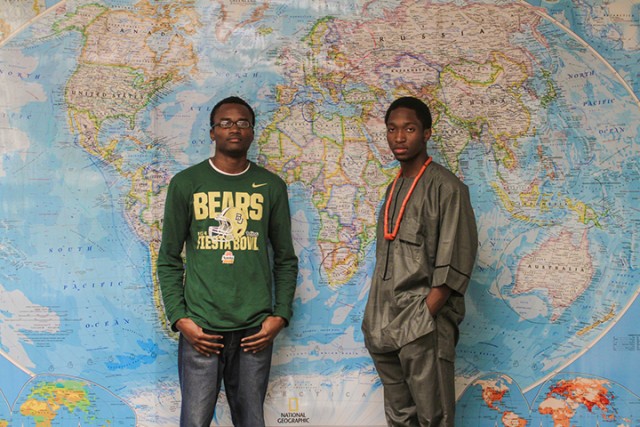
Skye Duncan | Lariat Photo Editor
By Rachel Leland
Staff Writer
After the Boko Haram terrorist group killed as many as 2000 people in Baga, Nigeria, Baylor students from the region expressed their concerns about this group’s operations in their home country.
According to the Bureau of Counterterrorism, the Boko Haram advocates that Sharia law be instituted in all of Nigeria and are highly opposed to Western culture influencing the country. The group’s name translates: “Western education is forbidden.”
Many of their targets include federal buildings, schools, churches and even mosques.
“I think towards the end of my high school career, that’s when they started bombing Christian churches,” said Horseheads, N.Y., sophomore Ruru Idahosa. “It stuck out to me as an issue.”
Idahosa was born in Nigeria in 1995 but moved to the Caribbean island of Antigua when he was 3. His family then moved to the United States five years later.
“They are trying to promote Sharia law wherever they go,” said Lagos, Nigeria junior Raphael Ozoude. “And most Nigerians don’t want that, because why would you want Sharia law?”
Though the Boko Haram has been operating since the early 2000s, they have little support within Nigeria.
“It’s going to take the country backwards,” Ozoude said. “They want to open doors for themselves, not to close them.”
Both students said lack of military resources and corruption as reasons the Nigerian government, which commands one of the largest militaries in Africa, has been unable to stop the terrorist group over the decade.
“If you look at the numbers, we outnumber those guys so bad,” Idahosa said. “We have one of the largest militaries in Africa. We should be able to wipe out a bunch of terrorists, but corruption and oversight is what’s causing this terrorist cell to stay where it i is.”
Despite the military’s relatively large scale, it has not been able to contain this group. However, authorities have kept terrorists from launching rockets in the south of Nigeria.
“I know that the military has been criticized a lot, which I think is unfair because it takes a lot of money to fund the military,” Ozoude said.
While he said he thinks military advisement from Western countries may be helpful, Ozoude said he doubts that military-planned drone strikes will efficiently address the problem.
“This could be more of a problem than a solution because you’re going to kill innocent people too,” Ozoude said.
Both students are from the south. Neither of their families have been directly affected by any attacks, which are estimated to have claimed tens of thousands
Dr. Sergiy Kudelia, assistant professor of political science, studies terrorists. He does not believe military assistance in the form of Western drones will be able to effectively replace local military.
“I think if the United States tries to use drones to eliminate Boko Haram it’s not going to work,” Kudelia said. “It will generate more resentment and give the impression that the Nigerian government is weak and needs Western support. It may also further alienate Nigerian people on the ground because they would see the government as working for the West.”
However, living in the south does not keep Ozoude from fearing for those in the north. He said he is concerned about the well-being of 276 girls who were kidnapped last year by the terrorist group.
“I fear that the girls are being used as suicide bombers because it’s possible to get a thirteen-year-old girl to press a button and blow herself up,” Ozoude said.



